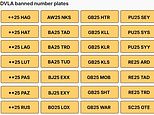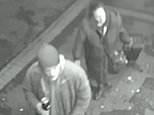For those of us with a strong family history of breast cancer, new blood cancer tests pose an interesting conundrum.
Should we fork out and go private to have one of these ‘liquid biopsies’, still a long way from being freely available on the NHS? Or do we stick with existing screening methods, such as the annual mammograms I already have?
There’s no doubt that we’ve entered a new era of cancer detection, but — while obviously brilliant if it saves lives — it is still only in the early stages and not yet rigorously tested in large-scale trials.
A ‘liquid biopsy’ is a blood test that detects signs of cancerous tumours.


One of these is the Galleri test, currently being trialled on the NHS. It looks for changes in fragments of genetic code — cell-free DNA (cfDNA) — that leak from tumours into the bloodstream.
It can help to identify over 50 different types of cancer (based on the results reported so far, the test is not currently that good at picking up stage 1 cancer, where the cancer is small and hasn’t spread to other parts of the body — it is most reliable with later-stage tumours).
There’s also TruCheck, a test launched privately in the UK in late 2022: this detects microscopic circulating tumour cells (CTCs) themselves, rather than genetic material that has leached from tumours.
Research in 2021 found that CTCs can help diagnose solid organ cancers: CTCs were found in 92.6 per cent of samples from 6,025 people with symptoms who went on to be diagnosed with cancer (some of the researchers had been employed by Datar Cancer Genetics, the company behind TruCheck).
The TruCheck test has been shown to have a sensitivity of 88 per cent for the detection of solid tumours, which includes breast cancer, according to the research in the journal Cancer Cytopathology. ‘These tests are an interesting development in terms of cancer screening,’ says Dr John Pettit, an NHS GP, who also works at Goodbody Clinic, one of the providers of TruCheck in the UK.
‘They can’t replace orthodox screening yet, but they could be complementary to it. Mammograms are more difficult to read in younger women because their breast tissue is denser. Some types of cancer may also be difficult to detect through a mammogram.’
These include lobular tumours, for example, which don’t grow in a round mass but like a spider’s web or mesh. The ability of screening mammograms to spot cancer in women who don’t have symptoms such as an obvious lump varies, from as low as 30 per cent in women with particularly dense breast tissue to 90 per cent, according to studies.
‘In contrast to mammography, it seems TruCheck is proving to be a highly accurate, non-invasive blood test which involves no exposure to any radiation and much less discomfort for the patient,’ says Dr Pettit.
However, it’s important to note that the amount of radiation from each mammogram is low, similar to what we might be exposed to on a long-haul flight.
And Dr Liz O’Riordan, a retired breast surgeon and author of The Complete Guide To Breast Cancer, advises caution, saying: ‘The point of screening is to pick up cancer at an early stage where there is proof that if it’s treated earlier it will save lives.’
There’s a lot of evidence behind screening such as mammography and cervical smears, she says, ‘but in contrast, this blood test hasn’t been extensively tested, meaning we can’t understand its full implications yet and whether it will help to reduce deaths from cancer’.
The most comprehensive version of TruCheck looks for 70 different kinds of cancers, at a price of around £1,199.
There is a cheaper option (£449) which just looks for circulating breast tumour cells (the test cannot detect blood or lymphatic system cancers, as only solid organ cancers produce CTCs).

As well as the lack of long-term research, another consideration is the anxiety involved in taking a test — as I know after being offered the opportunity to try out the TruCheck blood test myself.
Both my older half-sisters developed breast cancer — one aged 38 and the other 42 — and my grandfather had prostate cancer (another risk factor). I’m 45 and have been having yearly mammograms since I turned 40.
After a pre-test counselling call with Dr Pettit, which involved talking me through how the test worked, a nurse came to my house to draw blood — then a very anxious wait commenced.
Results are typically returned within two to three weeks. Negative or positive, they are sent via email, with a follow-up call from the doctor if they are positive.
You can buy the test without being referred by a doctor — although you do need to be aged over 40, with no previous cancer diagnosis.
But Dr Pettit says ‘this is evolving science, and these tests should only be offered under appropriate medical supervision, from a doctor with experience of the test and the research behind it’.
He adds: ‘Positive results should only be interpreted by an oncologist as they can have various implications that need to be managed properly, so that any anxiety felt by the patient can be properly dealt with.


‘Most GPs will not yet be aware of the details of the evolution of these tests, but if someone with a positive result opts for NHS care, Goodbody provides all of this information to their GP and requests that they’re referred through the local NHS “two-week wait” cancer service for advice and further tests.’
But as Dr O’Riordan, who has been treated for breast cancer herself, says: ‘If you don’t have urgent red-flag symptoms you might not be seen under a two-week wait on the NHS.
‘How many tests and procedures and “scanxiety” will people with a positive result have to go through and possibly not find anything?’
The risk of false positives — a result that indicates a given condition exists when it does not — is a big concern for many in terms of this new technology.
Dr Pettit concedes false positives may be a concern: ‘We don’t know yet, but it is possible some live cancer cells will never become a clinical issue.
‘However, the false positive rate for TruCheck at present appears to be better than those for mammography; the PSA blood test to detect prostate cancer; and the bowel screening stool test,’ he says.
After a two-week wait, the email with my results arrived mid-morning. I was incredibly nervous — opening it actually triggered a migraine — but deeply relieved when I read the results and discovered that no CTCs were detected.
However, as Dr O’Riordan points out, it doesn’t prove anything. ‘Both false positives and false negatives are a problem,’ she says. ‘This test might pick up cells that don’t mean anything, or miss cells so people may be falsely assured that they don’t have cancer and stop screening and checking themselves.
‘We don’t know what having CTCs in the blood means in the long term, which is another reason to take this with a pinch of salt.’
She adds: ‘There is future potential for these blood tests — after trials have been repeated and this method of detection has been proven to have an effect on outcomes.
‘My worry at the moment is that this is preying on the wealthy. You are advised to repeat the test yearly, which would be very expensive.’
Dr Pettit says: ‘The test will become cheaper and more accessible, but at the moment it can offer short-term reassurance or a chance of early detection for people with a strong family history of breast cancer or a known, defined genetic risk.’
I feel reassured by my results but, after speaking to Dr O’Riordan, I am not sure I would self-refer to have the test again privately. These kinds of tests are doubtless a future pillar of cancer screening, but I’ll be sticking with my annual mammograms on the NHS — for now.












